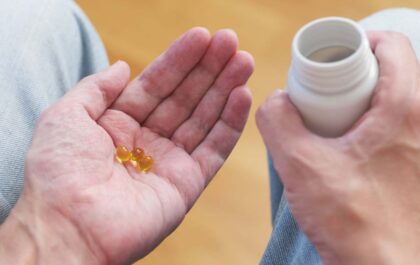Table of Contents
Introduction
Trembling hands may occur at rest (such as Parkinson’s disease) or may arise if active. It divides the trembling of the indicators that occurs with the activity based on the time of its appearance.
If you’re a little nervous or excited, it’s normal for your fingers to tremble and your hands to vibrate, but what if your hands tremble more than usual? This condition can be a cause for concern, especially if it’s linked to Parkinson’s disease.
A neurologist specialising in movement disorders at Harvard University’s Brigham and Women’s Hospital said: “Minor vibrations are not life-threatening, but those with severe tremors may have difficulty feeding themselves, dressing or driving.
Symptoms of Trembling Hands
Trembling hands may occur at rest (such as Parkinson’s disease) or may arise if active. It divides the trembling of the indicators that occurs with the activity based on the time of its appearance.
“Postural tremor occurs when the hands are outstretched, and gravity pulls them down. Hands cannot be fixed entirely while they are stretched. They disappear in most cases when the hands are relaxed and reappear when the muscles are used
Intentional tremor – Intention tremor begins when you reach a target, such as when you try to open the house door with the key.
Finally, the tremor of the task begins when you do a job or activity, as it is when writing.”
Causes of Trembling Hands
We all have a slight trembling of the hands called physiological tremor; this tremor is typical and not usually observed.
Abnormal Tremors include the Following Types
Increased Physiological Tremor:
It can occur due to caffeine use, hyperthyroidism, stress, fatigue or sleep deprivation to increase the severity of the physiological tremor. This trembling of the hands may manifest itself as a postural tremor.
The Tremor Caused By Medications:
Some medications may cause trembling hands, such as the antidepressant bupropion and amiodarone, which are used for heart disorders.
Trembling hands due to Parkinson’s disease:
This tremor can occur at rest with or without advanced degenerative symptoms of Parkinson’s disease.
Essential Tremor:
It is the most common type of trembling of the hands, and in some cases, it has a genetic basis in the family. It manifests itself in 4 to 7 tremors in hand per second. This tremor has nothing to do with neurological diseases and is often a single neurological symptom. This symptom tends to increase momentum in certain activities, especially during muscle stability on whatever movement, for example, when holding a cup.
This type worsens with age, becomes more severe in cases of panic, stress or lack of physical activity, and decreases in intensity when walking or after drinking alcohol.
Exacerbation of tremors can lead to difficulties in writing and blurred calligraphy, inability to bring a spoon or cup to the mouth without pouring food or drink, and problems in other activities that require precision in the work of the hands.
Cerebellum Tremor – Ataxia Tremor:
The cerebellum is responsible, along with other parts of the brain, for coordinating muscle activity. Therefore, in the event of diseases of the cerebellum or nearby places in the brainstem, there is a possibility of trembling hands, which worsens the more one needs consistency and precision.
This tremor is harsh and slow, appearing at a rate of 2 to 4 times per second.
Tremor Withdrawal Symptoms
People with alcohol or drug addiction withdrawal symptoms may experience postural tremors.
Diagnosis
Diagnosing trembling hands requires a physical examination and careful analysis of medical history.
Doctors say: “I want to know what trembling of the hands looks like and whether there are any associated traits. For example, is there impaired balance, stiffness, or slowness in movement, as in Parkinson’s disease? Was there a stroke?
Is there a lesion in the brain? Does a person take a particular medication? Does a person consume too much caffeine? Or does he have any other medical conditions?”
They add that it may be necessary to request a laboratory test to check for thyroid disease or to get a picture of the brain to check for signs of a previous stroke.
Therapy:
You may need to reduce caffeine or control stress to improve physiological tremors.
Tremors caused by a thyroid disorder or alcohol withdrawal can be reduced by treating these problems
Parkinson’s tremors can be reduced with anti-Parkinson’s medications or deep brain stimulation, where electrodes are implanted in the brain to stimulate the areas that regulate movements in the bod
Suppose the trembling of the hands is idiopathic.
In that case, medications such as beta-propranolol blockers (Inderal) or the anti-seizure drug Primidone (Mysoline) are used, and pills work on the nervous system, but taking them involves various side effects such as feeling unstable or sleepy.
Therefore, starting these drugs in small doses and gradually increasing them is advisable. These medications also contain a range of antiepileptic drugs, and you should consult with a specialist regarding administering the appropriate type of medication.
Related posts
Featured Posts
Exploring Advanced Techniques in the Laser Engraving Machine: 3D, Texturing, and Multi-Layered Designs
Many industries have spoken for the laser engraving machine because of its results and versatility. But recently, many advancements have…
Benefits of Vitamin D
Introduction One cannot live without the benefits of vitamin D because its virtues are essential for good health. But do…


